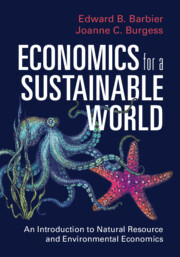Land to Sea: integrated modelling of consequences of terrestrial activities and climate change for freshwater and coastal marine biodiversity and ecosystem services
Project Summary
The overall objectives of the project are to:
- develop an integrative framework of coupled models for predicting the immediate and long term consequences of land-use and climate change for the delivery of nature’s contributions to people, including ecosystem services, and the underlying biodiversity and ecosystem processes in freshwater and marine ecosystems;
- co-design a mechanism for the application of the framework to environmental policy and practice.
- Establish scenarios of human and global change associated pressures on terrestrial, freshwater and marine ecosystems;
- Develop a conceptual model and mechanistic framework for impacts of multiple terrestrially-derived pressures on freshwater and marine biodiversity and ecosystem processes;
- Determine consequences of changes in freshwater and marine ecosystems for delivery of nature’s contributions to people, including ecosystem services;
- Construct integrated frameworks of coupled models to predict the consequences of terrestrial inputs for freshwater and marine ecosystems and nature’s contributions to people;
- Derive decision support tools and recommendations for policy, management and mitigation aligned with the work of the Intergovernmental Platform on Biodiversity and Ecosystem Services (IPBES).
The intellectual merit of the project is the advancement of knowledge on integrating economic, social and natural sciences in a comprehensive framework for assessing the consequences of human activities on water quality and biodiversity. It will capture the links between terrestrial inputs and impacts on freshwater and marine systems and incorporate physical, ecological and social dimensions aligned with the Conceptual Framework of the IPBES.
The broader impacts of the project will be to improve environmental policy for managing complex marine-freshwater ecosystem interactions, especially those arising from human impacts on water quality and biodiversity, and to facilitate coastal adaptation to climate change.
Principal Investigator: Edward B. Barbier, University Distinguished Professor, Department of Economics and Senior Scholar, School of Global Environmental Sustainability, Colorado State University
Funding: Research Grant, The Belmont Foundation and the U.S. National Science Foundation
Duration: 1 March 2019 to 28 February 2022.


